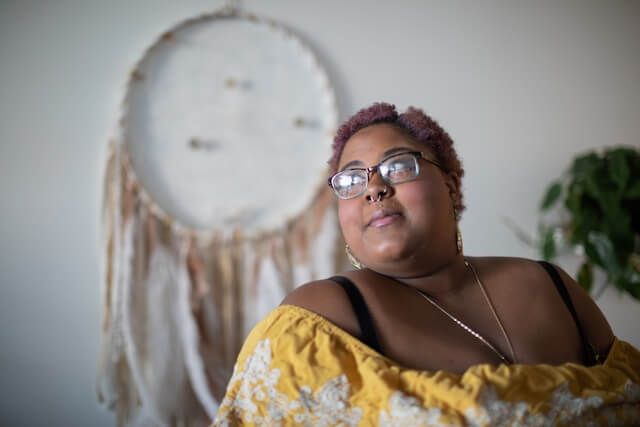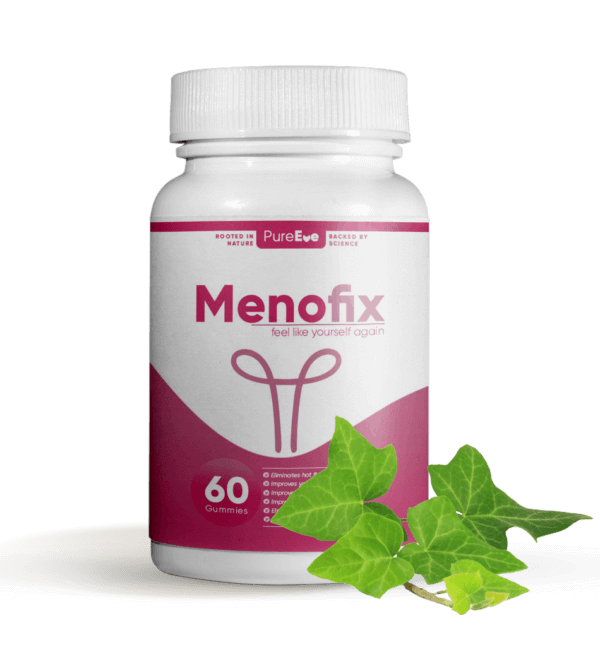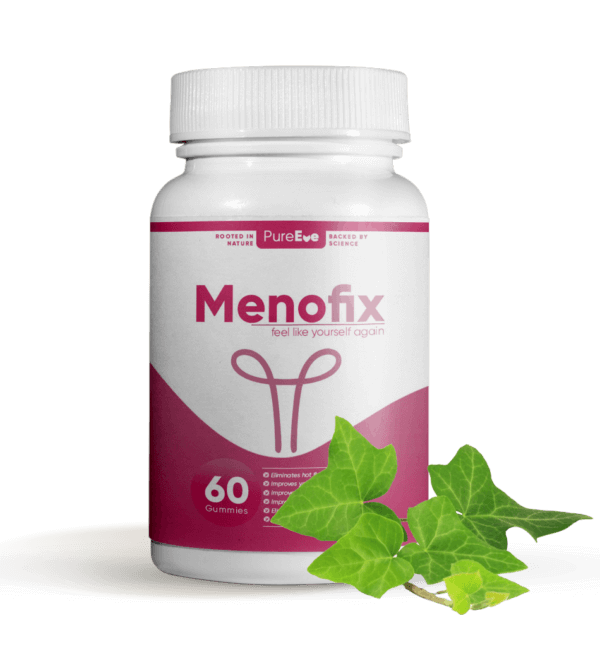It is a well-known fact that menopause does not start at the same time for women in Nigeria. Just like periods, every woman’s body has its own timing and rhythm. However, doctors agree that menopause occurs within a general age range and follows a particular biological pattern.
For many women, especially in Nigeria, this life transition is often misunderstood or feared. But it doesn’t have to be so. If you’re wondering if you’re close to menopause what you should expect, this article is for you.
In the article, we will explain what menopause is, when women in Nigeria will likely start experiencing it, the symptoms to watch out for, what might affect the timing, and how to manage it naturally.
What Exactly Is Menopause?
Menopause is the time in a woman’s life when her monthly periods stop for good. Medically, it’s confirmed after a woman goes 12 months without menstruating (and not due to pregnancy or illness).
It signals the end of her reproductive years; no more eggs, no more periods, and a serious shift in hormone levels, especially estrogen and progesterone.
But don’t worry, menopause is not a disease. It’s a natural phase in a woman’s life. That said, the symptoms can be very uncomfortable and life-interrupting.
So, When Does Menopause Start for Most Women in Nigeria?
According to the World Health Organization (WHO), most women around the world (and this includes Nigerian women) reach menopause between the ages of 45 and 55.
However, it can start earlier or later.
Average age globally: 51
Average age in Nigeria: 48 to 52 years
Early menopause: Before 45
Premature menopause: Before 40
Although many of our mothers experienced menopause at a later age, around 48 to 42 years, many younger Nigerian women seem to experience menopause at a much earlier age.
This can be caused by a lot of things, but early menopause is often due to factors like genetics or autoimmune conditions. It can even be caused by what we may see as lifestyle stressors like career and family workload, illnesses, etc.
Also Read: Do You Pee Often? You Might Be Approaching Menopause, But We Can Help
What Comes Before Menopause? Perimenopause
Before menopause hits, women go through perimenopause, and this is when the chaos begins. Perimenopause is the years leading up to menopause when hormone levels start to fluctuate and symptoms begin.
Perimenopause can last 4 to 10 years and usually starts in your early to mid 40s. Because of the hormonal ups and downs associated with this phase, you’ll likely notice some of these symptoms which we will explain in another section:
- Irregular periods
- Hot flashes and night sweats
- Mood swings and irritability
- Vaginal dryness
- Low libido
- Sleep problems
- Brain fog or forgetfulness
- Frequent urination
Causes of Early Menopause in Nigerian Women
Several factors influence the age at which women in Nigeria reach menopause:
Genetics
One of the strongest predictors is your family history. If your mother or older sisters hit menopause early, there’s a high chance you might too. Lifestyle: Smoking, poor diet, or chronic stress can hasten menopause.
Medical Treatments
Women who undergo surgeries like hysterectomies (removal of the uterus) or oophorectomies (removal of ovaries) can experience early menopause. Also, Cancer treatments like chemotherapy can trigger early menopause.
Smoking
Studies have shown that women who smoke may reach menopause up to 2 years earlier than non-smokers.
Nutrition and Lifestyle
A poor diet, lack of exercise, obesity, or extreme weight loss can all influence the onset of menopause. In Nigeria, women in urban settings who lead sedentary lifestyles may experience symptoms differently than rural women who are more active.
Autoimmune Disorders and Environmental Factors
Disorders such as thyroid disease or lupus can cause early menopause. In the same way, exposure to pollutants or toxins can interfere with hormonal balance and cause women exposed to these to go into menopause earlier than normal.
How Do You Know You’ve Reached Menopause?
To be honest, this part is quite tricky because you usually only know you’ve reached menopause in hindsight; when you look back and realize, “Ah! I haven’t had my period in over a year.”
Some women enter menopause quietly. Others? Not so much. The symptoms can be intense and sometimes confusing.
But Here are the most common signs to watch out for:
Irregular periods: Your cycle may become shorter, longer, heavier, or lighter. With time, you stop menstruating completely.
Hot flashes: This is a sudden feeling of heat in the upper body that lasts a few seconds or minutes.
Night sweats: Sometimes you may wake up drenched in sweat, even when the room is cool.
Mood swings and irritability: Some women report increased anxiety, sadness, anger, or other negative emotions.
Sleep problems: You may start to have difficulty falling or staying asleep.
Vaginal dryness and low libido: This is caused by declining estrogen levels.
Weight gain: A lot of women experience weight gain, particularly around the abdomen.
Memory problems or brain fog: You may begin to have trouble focusing or remembering things.
If you’re experiencing these symptoms and are between 45 and 55, you’re likely in menopause.
How Long Does Menopause Last?
Here’s the interesting part; menopause itself is only one day. Yes, you read that right. It’s the one-year anniversary of your last period.
But the transition into menopause (called perimenopause) can last 4 to 8 years, while the postmenopausal phase (after periods stop) can last the rest of your life.
Symptoms like hot flashes can persist for up to 10 years after menopause begins, although they often reduce in intensity over time.
Is There Relief? Yes. And It’s Natural.
One of the biggest concerns women have is how to manage menopause symptoms naturally; without pumping their bodies with artificial hormones.
This is where Menofix comes in. Menofix is a natural herbal remedy formulated specifically to ease the symptoms of perimenopause and menopause.
It is made with a blend of plant-based ingredients that helps rebalance hormones and reduce the discomfort that comes with the menopausal phase of life.
What Menofix Helps With:
- Hot Flashes & Night Sweats: It calms the internal heat and reduces sudden flushes.
- Mood Swings & Anxiety: It stabilizes mood and helps you feel more “yourself.”
- Low Libido & Vaginal Dryness: It helps to improve circulation and lubrication naturally.
- Brain Fog: Menofix also helps with clarity, focus, and memory.
- Poor Sleep: This supplement also encourages deep, restorative sleep.
Women who’ve used it report feeling relief in as little as 7–14 days.
The Cultural Side of Menopause in Nigeria
Let’s be honest, menopause is still a taboo topic in many Nigerian homes. For some, it’s joked about as “old woman syndrome.” For others, it’s brushed off entirely.
This silence causes many women to suffer in silence. They don’t seek help, neither do they talk to their doctors. They just “manage it”, sometimes with unhealthy coping mechanisms.
It’s time to change that narrative. Menopause is not the end of youth. It’s just another phase of life. And just like any transition in life, it deserves care and the right remedy.
Should You See a Doctor?
While menopause is natural, you should see a doctor if:
- You experience menopause symptoms before 40
- You bleed after not seeing your period for over a year
- Your symptoms are interfering with daily life
- You want to rule out other medical conditions
Some women may need blood tests to check FSH (follicle-stimulating hormone) or estrogen levels to confirm their menopause stage.
Lifestyle Tips for Easing Menopause Symptoms
Besides using Menofix, here are some tips you can adopt as a Nigerian woman to make the journey smoother:
Eat a Balanced Diet: Include more fruits, vegetables, whole grains, and healthy fats. Also, try as much as you can to reduce processed sugar and carbs.
Exercise More: Exercise helps manage weight and boosts mood. It can also strengthen your bones.
Drink Water: The importance of water can never be overemphasized. Drinking the right amount of water helps with dryness and bloating.
Practice Relaxation: Practice deep breathing and mindfulness to help ease anxiety. Prayer can also work as a form of relaxation too.
Limit Alcohol and Caffeine: These can worsen hot flashes and mood swings. So, limit them or avoid them altogether.
Dress in Layers: Especially during night sweats. It makes it easy to peel off when things heat up.
What About Sex?
Many women experience lower libido, pain during sex, or vaginal dryness. But again, you’re not alone, and it’s not the end of your intimacy life.
Menofix helps naturally with circulation and lubrication. Combined with open communication and a little creativity, many women find this stage brings better sex, not worse.
Approach Menopause with Grace and Confidence
The time menopause start differs for different women; but for most women in Nigeria, it’s between 48 and 52 years.
It’s a natural transition, not a medical emergency. It’s true the symptoms can be tough, but they’re manageable, especially when you know what to expect and how to treat them naturally.
If you’ve been feeling “off,” hot, moody, forgetful, or just not yourself, Menofix might be just what your body needs. Try Menofix today and rediscover your balance, naturally.




















